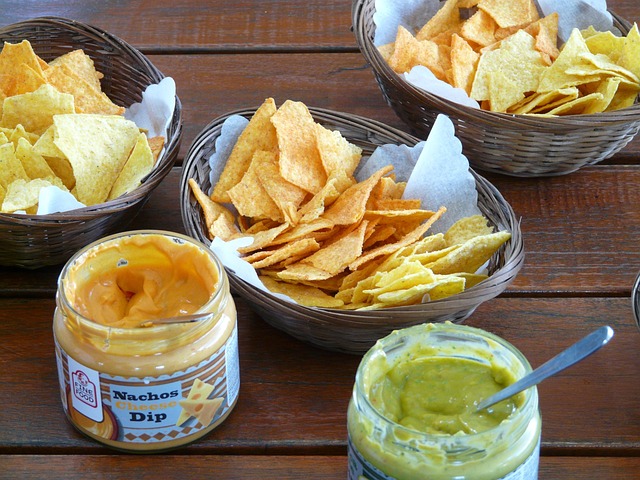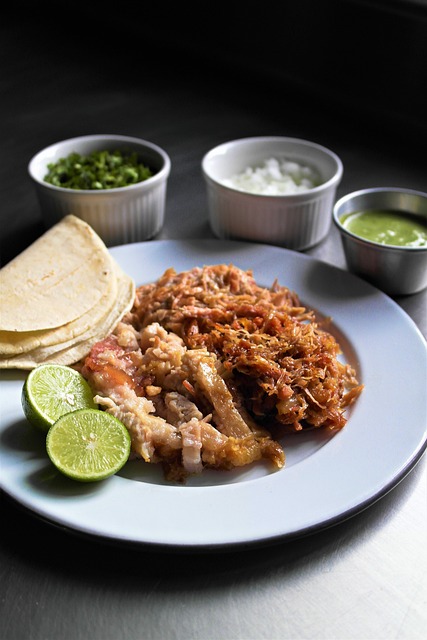Mexican markets are witnessing a surge in demand for homemade tortilla chips, especially crispy restaurant-style ones, driven by health-conscious consumers and a celebration of culinary heritage. Using traditional methods, donkeys grind corn and shape it into triangles fried to perfection, creating an authentic experience. These artisanal chips, with their distinct smoky aroma and taste, offer a healthier alternative to store-bought varieties. Supporting local markets promoting donkey-drawn cart production not only preserves cultural heritage but also contributes to community growth.
In Mexican markets, a surprising trend is gaining momentum: homemade tortilla chips are taking center stage. Beyond their crispy, restaurant-style counterparts, these locally produced gems offer a unique, donkey-powered production process and distinct flavor profiles. This article explores the rise of these artisanal chips, delving into ingredients, production methods, health benefits, and the significant role they play in supporting local businesses. Discover why Mexican market tortilla chips are not just crispy treats but a testament to cultural heritage and culinary innovation.
- The Rise of Homemade Tortilla Chips in Mexican Markets
- Donkey-Powered Production: A Unique Selling Point
- Ingredients and Their Impact on Chip Quality
- Traditional vs. Restaurant-Style: What Sets Them Apart?
- Health Benefits and Considerations for Consumers
- Supporting Local Businesses: The Importance of Mexican Market Chips
The Rise of Homemade Tortilla Chips in Mexican Markets

In recent years, Mexican markets have witnessed a surge in demand for homemade tortilla chips, a trend that has transformed the way locals snack and enjoy their traditional cuisine. This rise can be attributed to the growing preference for crispy, restaurant-style tortilla chips among both locals and tourists alike. The process of making these chips is an art passed down through generations, with each family adding their unique twist to achieve the perfect crunch and flavor.
Donkey-drawn carts and vibrant street stalls have become common sights in these markets, where vendors offer a variety of freshly made tortilla chips. The success of this homemade movement lies in the use of simple, quality ingredients and traditional methods that produce chips comparable to those served in top restaurants. This trend not only caters to health-conscious consumers seeking a healthier alternative to store-bought chips but also celebrates the rich culinary heritage of Mexico.
Donkey-Powered Production: A Unique Selling Point

In many Mexican markets, a unique and captivating scene unfolds as local artisans produce crispy restaurant-style tortilla chips using donkeys. This traditional method, often witnessed in small towns and rural areas, adds an authentic touch to the chip-making process. The donkeys, with their steady and gentle pace, grind the corn into masa, which is then shaped into tortillas by hand. What follows is a meticulous process of frying these thin, delicate discs until they achieve that perfect crispy texture beloved by many.
The use of donkey power in production isn’t just a nostalgic practice; it’s a key differentiator for these markets. It appeals to tourists and food enthusiasts seeking authentic experiences and products. The charming scene of donkeys working alongside locals creates an enchanting atmosphere, ensuring these markets stand out amidst the sea of industrial food production.
Ingredients and Their Impact on Chip Quality

The quality of homemade tortilla chips is greatly influenced by the ingredients used. The traditional method involves corn tortillas, cut into triangles and fried until they achieve that crispy, golden-brown texture beloved by many. The key ingredient here is high-quality corn, ensuring a vibrant flavor and a light, airy crunch. Some vendors also add a touch of salt or other seasonings to enhance the taste, bringing these chips closer to restaurant-style quality.
Donkey-roasted or sun-dried tortillas, a specialty in many Mexican markets, contribute to a distinct flavor profile. The roasting process adds a subtle smoky aroma and a slightly more robust taste compared to their fried counterparts. These ingredients play a significant role in creating not just chips, but a culinary experience that transports taste buds to vibrant Mexican streets.
Traditional vs. Restaurant-Style: What Sets Them Apart?

Traditional Mexican markets are a treasure trove for chip enthusiasts, offering a diverse range of homemade tortilla chips that differ significantly from their restaurant-style counterparts. While traditional chips are often thicker, softer, and slightly chewier, reflecting a more home-cooked approach, Restaurant-Style Tortilla Chips have evolved to be crispy, light, and uniformly thin. This transformation is largely driven by the need to cater to quick service restaurant (QSR) demands, where speed of preparation and consistent quality are paramount.
The Donkey, for instance, has become a symbol of these Restaurant-Style chips – meticulously crafted to deliver that perfect crunch with each bite. They’re designed to withstand the rigors of mass production and still retain their flavor, making them a staple in many QSR menus worldwide. This contrast between traditional and restaurant-style chips highlights the ever-evolving nature of Mexican cuisine, balancing deep-rooted traditions with modern culinary trends.
Health Benefits and Considerations for Consumers

Homemade tortilla chips, often found in Mexican markets, offer a delightful and crispy snack experience with potential health benefits. Crafted from simple ingredients like corn tortillas, vegetable oils, and sometimes spices, these chips provide an alternative to their store-bought counterparts. Consumers looking for a healthier option appreciate that homemade varieties typically have fewer preservatives and artificial flavors, making them a more natural choice.
When enjoying crispy restaurant-style tortilla chips made by donkeys (a unique selling point), it’s essential to be mindful of portion sizes. While they may be lower in unhealthy fats compared to commercial brands, excessive consumption can still contribute to calorie intake. Opting for these homemade treats as part of a balanced diet ensures that health considerations are met without sacrificing taste and texture.
Supporting Local Businesses: The Importance of Mexican Market Chips

Supporting local businesses is a significant aspect of fostering community growth and cultural preservation, and Mexican markets selling homemade tortilla chips play a unique role in this. These markets are not just places to purchase delicious, crispy restaurant-style tortilla chips; they are hubs of local economy and tradition. The art of making tortilla chips by hand, often passed down through generations, ensures that authentic flavors and techniques remain intact.
By buying from these markets, consumers directly contribute to the sustainability and vitality of their communities. Every chip made by dedicated artisans like those at Mexican markets embodies the spirit of a donkey—steadfast, resilient, and unwavering in their dedication to crafting quality products. This support not only keeps traditional methods alive but also creates opportunities for local entrepreneurs, strengthening the social fabric of neighborhoods.
The homemade tortilla chips found in Mexican markets offer a unique blend of tradition, quality, and local support. From donkey-powered production to healthful ingredients, these chips showcase the best of Mexican culinary culture. Whether you prefer them crispy and restaurant-style or with a more traditional twist, they’re a delicious way to connect with local businesses and enjoy authentic flavors. So, next time you’re in a Mexican market, don’t miss out on this tasty treat!
